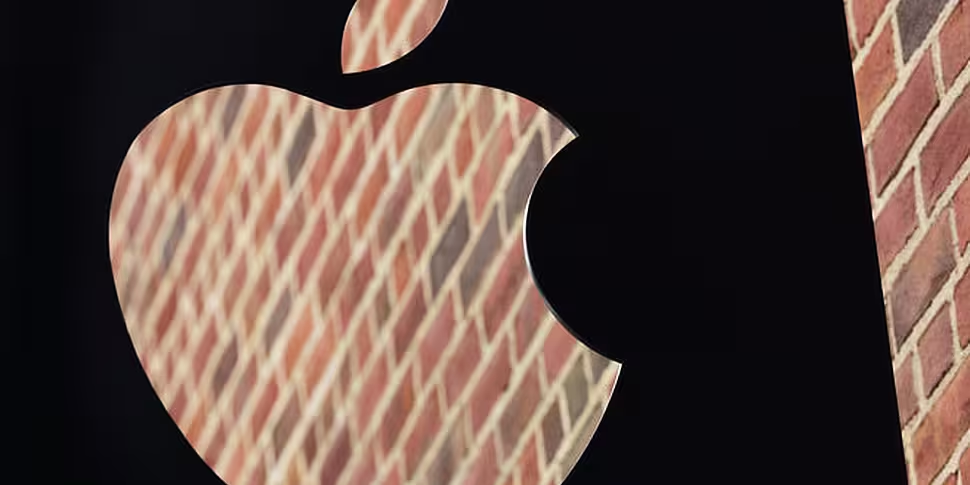TDs have voted in favour of appealing the European Commission's ruling that Apple was given a 'sweetheart' tax deal by the Irish State.
Fine Gael, Fianna Fáil, Labour and the Independent Alliance joined forces to back the appeal last night after 10 hours debating the issue.
Follow the money...
Apple's tax status in Ireland was neatly summed up by Phillip Bullock, the head of tax operations for Apple when he addressed a US Senate committee in 2013. He said that Apple Operations International (AOI) "is incorporated in Ireland; thus, under US law it is not tax resident in the U.S."
The executive continued, "AOI is also not tax resident in Ireland because it does not meet the fact-specific residency requirements of Irish law." This meant that it was not taxable in the US under its laws - and not taxable in Ireland under Irish laws.
Boots on the ground
The above passage was highlighted in a piece by in The New Yorker which delineated the border between Apple's paper presence in Ireland - and its physical operation.

PA
The company set up in Ireland in 1980, long before the Celtic Tiger boom started. The magazine highlights the importance of this presence to the Irish economy. It employs almost 6,000 people in well-paid jobs - it reports that equivalent figure in the US economy would be 420,000.
Apple's physical Irish presence in Cork has factories making iMacs and marketing and support teams among other operations. This separate to the entity that sales were booked through - the Commission ruled that the 'head office' had no staff and no premises in Ireland or anywhere else.
Throughout this controversy, the company has reiterated its commitment to its Irish operations. It also plans to construct a giant data centre in Co Galway.
Appeal
Throughout the investigation into Apple's tax affairs in Ireland, the Government has argued that it has been involved in no wrongdoing and that it would be ready to appeal against any negative finding.
This involves saying 'no' a payout which could be in excess of €13bn (more on that later). The situation resulted in the Vox headline, "Why Europe is ordering Apple to pay Ireland $14.5 billion in taxes Ireland doesn’t want."

PA
A number of opposition TDs have attacked the Government's decision to refuse this healthy payout. Sinn Fein led this charge.
Finance Minister, Michael Noonan said that taking the money would "be like eating the seed potatoes and destroying the future for people for short-term advantage now," as Ireland runs the risk of serious reputational damage following the EU ruling.
Tax Wars
Apple CEO Tim Cook rejected the findings and accused the European Commission of, "proposing to replace Irish tax laws with a view of what the Commission thinks the law should have been."
He said that the EU verdict was "an effort to rewrite Apple's history in Europe, ignore Ireland's tax laws and upend the international tax system in the process."
"This would strike a devastating blow to the sovereignty of EU member states over their own tax matters, and to the principle of certainty of law in Europe. Ireland has said they plan to appeal the Commission’s ruling and Apple will do the same. We are confident that the Commission’s order will be reversed," Mr Cook continued.
The ruling over Apple's tax payments is part of two larger stories - an international clampdown on tax avoidance and a rift between the EU and the US Treasury.
The European Commission has been accused of disproportionately targeting US firms with tax probes. Days before the Irish ruling the US Treasury issued a 25 page-long white paper which accused the EU Commission of acting like a "supra-national tax authority."

Speaking in the Dail yesterday, Taoiseach Enda Kenny used similar language, saying that this is a "power grab by Brussels."
"This is our sovereign right as a nation, and we object to attempts to restrict us making policies for our own people," he continued.
How much?
The headline figure has been that Ireland is owed '€13bn' in back taxes - plus interest which could bring the total amount closer to €19bn according to Grant Thornton.
While initially it was believed that this money would only be available to service national debt - it has since been established that this is not the case.

European Commission's slide illustrating the Apple payment structure
However, a briefing document from the Department of Finance issued to all TDs ahead of today's debate says that other EU states may be entitled to some of this money.
It adds that the money which Ireland can collect "would be reduced if other countries were to require Apple to pay more taxes on the profits recorded by Apple Sales International and Apple Operations Europe."
This echoes the European Commission's own statement which stated, "If other countries were to require Apple to pay more tax on profits of the two companies over the same period under their national taxation rules, this would reduce the amount to be recovered by Ireland."
The amount owed by Apple will be calculated by Irish authorities - using a formula issued by the EU. The involvement of additional countries in this process makes it unclear how much money can actually be collected by the Irish State.
Originally published on September 7th and updated at 9:20 on September 8th









